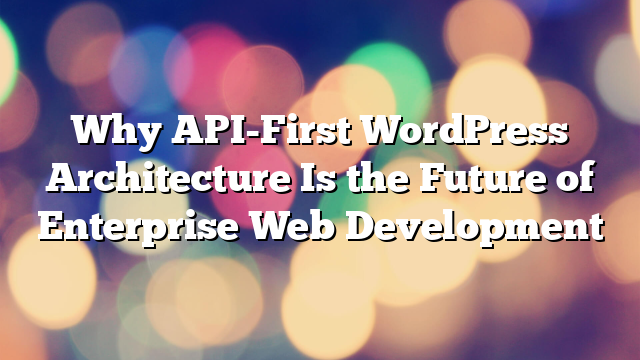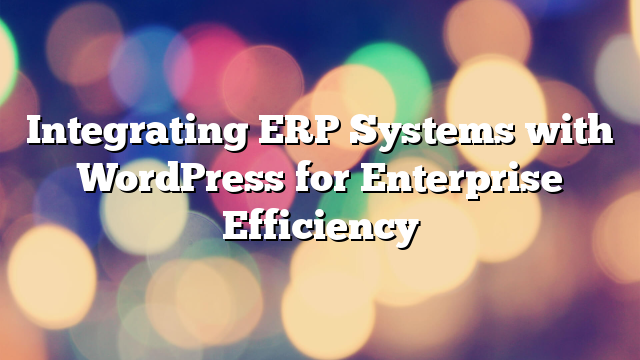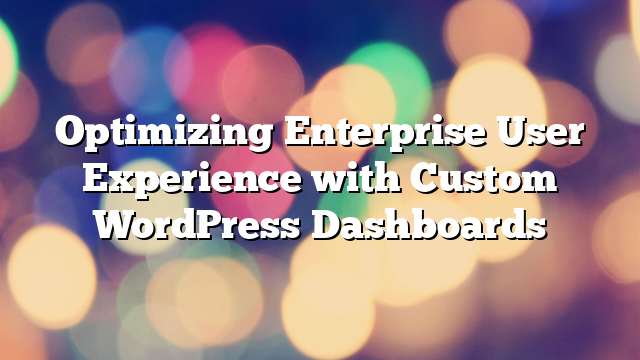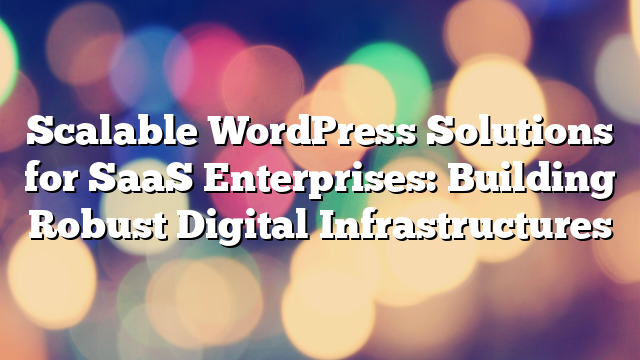Why API-First WordPress Architecture Is the Future of Enterprise Web Development
07.05.2025

As digital platforms evolve to become more interconnected and modular, enterprises are increasingly moving toward API-first architectures to ensure scalability, flexibility, and performance. WordPress, traditionally seen as a monolithic CMS, has rapidly matured into a robust API-first platform that can serve as the backbone of modern enterprise websites. This article explores how enterprises can harness WordPress’s REST API, the benefits of decoupled systems, and why API-first thinking is critical in today’s tech landscape.
The Shift Toward API-First Development
In an API-first model, all system components communicate through APIs, allowing teams to develop independently, use different technologies, and scale without being locked into a single architecture. For enterprises, this translates to:
- Omnichannel delivery: Serve content across websites, mobile apps, digital kiosks, and more from a central content hub.
- Faster time-to-market: Frontend and backend teams can work in parallel using standardized endpoints.
- Microservices integration: Easily connect your CMS with CRM, ERP, marketing automation, and analytics systems.
WordPress as an API-First CMS
With the introduction of the REST API in core, WordPress now supports a fully decoupled architecture where the backend manages content and APIs deliver it wherever needed. This opens the door to building modern interfaces with tools like React, Next.js, or Vue.js, while still using WordPress as the content foundation.
Enterprise teams can now use WordPress purely for content operations, letting frontend developers focus on performance, UX, and custom functionality without the constraints of traditional themes.
Benefits of Going API-First with WordPress
1. Enhanced Performance and User Experience
Modern frontend frameworks are optimized for speed and interactivity. By separating the presentation layer, enterprises can build blazing-fast, single-page applications that outperform traditional WordPress themes.
2. Enterprise-Grade Scalability
API-first WordPress enables content distribution to multiple endpoints — regional sites, partner platforms, native apps — without duplicating content. This architecture can scale globally with the help of CDNs and edge delivery strategies.
3. Future-Proofing
By decoupling, you future-proof your tech stack. As technologies evolve, you can update the frontend or backend independently, reducing technical debt and increasing agility.
4. Better Developer Experience
Developers can use modern tooling, continuous integration workflows, and JavaScript ecosystems to build, test, and deploy efficiently. Content creators continue using WordPress’s familiar dashboard, while developers work with APIs and frontend frameworks.
Key Technologies for Headless/API-First WordPress
- WordPress REST API: The core method for accessing WordPress data programmatically.
- GraphQL via WPGraphQL: A powerful alternative to REST that enables querying exactly the data you need.
- Next.js: The preferred framework for building high-performance, server-rendered React apps.
- Advanced Custom Fields (ACF): Paired with APIs to structure and deliver complex content types.
Real-World Applications
API-first WordPress is already powering enterprise websites, SaaS platforms, news portals, and e-commerce storefronts. Use cases include:
- Enterprise portals: With different frontends for internal and public views.
- Mobile applications: Powered by WordPress content via REST or GraphQL APIs.
- Multi-region sites: Sharing backend content but displaying unique interfaces per region.
Challenges and Considerations
While powerful, API-first WordPress projects come with challenges:
- Requires more initial planning and architecture design.
- Hosting and DevOps complexity may increase depending on the frontend stack.
- Caching, authentication, and SEO must be handled at the application level.
That said, these hurdles are easily overcome with the right partner and development strategy.
Conclusion: Go API-First for Long-Term Agility
In a digital environment that values speed, flexibility, and integration, API-first WordPress is a natural evolution for enterprise websites. It allows organizations to deliver better experiences faster and to adapt their digital infrastructure over time. By embracing this approach, enterprises stay ahead of the curve, delivering content wherever their audiences are — with performance and reliability.
At Vipe Studio, we help enterprises build and scale API-first, headless WordPress architectures with Next.js, custom APIs, and full performance optimization. Contact us today to architect your future-ready platform.



